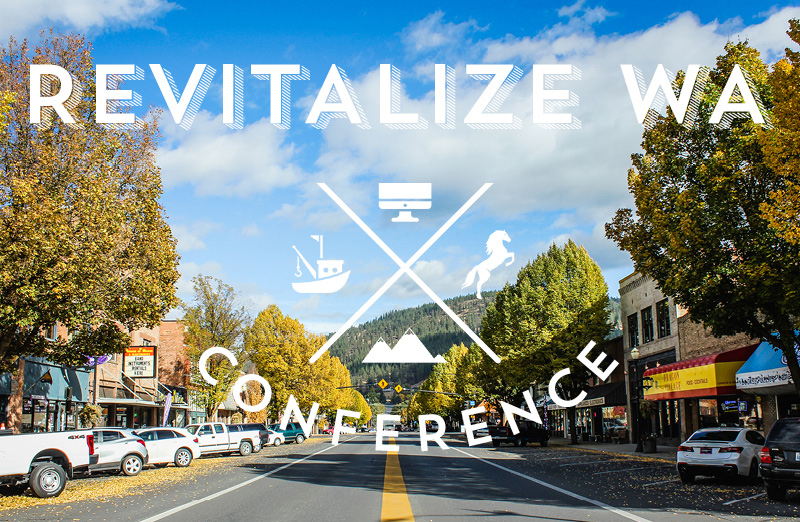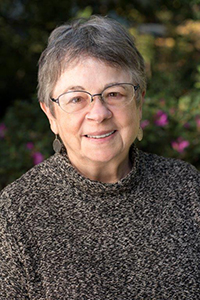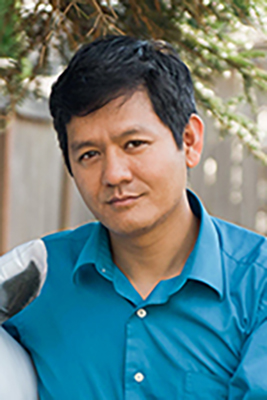
Monday, September 27
Tuesday, September 28
Wednesday, September 29
Thursday, September 30
Register Here
View PDF Schedule
Monday, September 27, 2021
9:00am – 10:15am | Opening Keynote: Mary Means, Founder of Main Street Movement
The Future Isn’t What It Used To Be
With some obvious exceptions (e.g. the Hulk), superpowers aren’t usually obvious upon first glance. The Main Street movement is at the point in the film where the cape is thrown on in plain sight of the crowds, rather than in the confines of the phone booth. In other words, we’re at a point of shifting paradigms and stepping more boldly into our roles as leaders. There has been a great deal of talk about resiliency over the last several years, and for good reason – resiliency is about anticipating change. Sometimes that means rethinking our own roles. In her keynote address, Main Street founder Mary Means will discuss the tremendous opportunities Main Street programs have to look past the face-value goal of maintaining pretty, “successful” downtowns toward a larger vision that taps into Main Street’s superpower – fostering truly resilient communities.

| Mary Means is best known for leading the team that created the National Main Street Center. More than 1,600 towns and historic neighborhood corridors in 40+ states have successfully used the Main Street Approach to bring people back to their historic cores. Mary was a Loeb Fellow at Harvard Graduate School of Design. Her small but mighty planning firm has helped communities and other public interest organizations with strategic plans that achieve strong public support. |
| Her work has been honored by the American Planning Association with its 2018 Planning Pioneer Award, and by the National Trust for Historic Preservation with the 2020 Crowninshield Award, the highest honor in historic preservation. Mary is the author of Main Street’s Comeback and How It Can Come Back Again, published in 2020. Of course you can buy it from Amazon, but why? Get your local bookseller to order it, or buy it here. |
10:30am – 11:30am | Breakout Sessions – Round One
Introducing the Historic Property Resource Guide
- Anneka Olson – Washington Trust for Historic Preservation Board of Directors
- Liz McGree – JEM Development
- Nicholas Vann – Department of Archaeology and Historic Preservation
- Rory Turner – Commercial Real Estate Services
- Carolyn Honeycutt – Midnight Mountain Consulting
Are you a business owner, Main Street professional, or local planner who’s wanted to rehabilitate a historic building in your community? Or just a dreamer who’s had your eye on a vacant building that’s in need of some TLC? This session will provide an overview of the new Historic Property Resource Guide for Washington State, which compiles resources available to public, private, and nonprofit owners rehabilitating historic buildings in Washington state.
Big Ideas for Small Business
- Matt Wagner – National Main Street Center
The return to bricks-and-mortar shopping is on the rebound, with consumer exuberance pushing supply chains to near failure and inventories for many goods to all-time lows. While it may feel and look similar to consumerism à la 2019, we cannot let the excitement mask the fact that interactions between businesses and consumers have fundamentally changed, creating new opportunities for how small businesses can generate revenues. In a recent survey of U.S. small and mid-sized business owners, 76 percent of those polled have pivoted or are in the process of pivoting since the pandemic, and among those, 73 percent expect to pivot again in 2022. As such, the “pivot” is here to stay and our small businesses will need to continue their work toward big ideas that work for them.
Culturally Responsive Placemaking: Foregrounding Race, Place & Identity in Equitable Community Development
- Ishmael Nunez – BDS Planning & Urban Design
- Brian Scott – BDS Planning & Urban Design
As organizations across the country take ownership of and demand accountability for the perpetuation of racist and inequitable policies, structures, programs and operations, the role of race and place is usually missing. As stewards of increasingly diverse communities, how can organizations foreground race, place and identity as they pursue equitable community development? How can commitments turn into actions, and actions into culturally responsive placemaking as daily practice? During this session, participants will learn why a lens of race, place and identity is essential for our organizations; opportunities to advance race and social equity; and the five phases of culturally responsive placemaking focused on race, identity, and deliberately equitable process
11:45am – 12:45pm | Breakout Sessions – Round Two
Place Activation in 90 Days
- Samantha Lorenz – Terra Soma, LLC
- Rosemary Shaw – Colville Together
- Teri Zambon – Centralia Downtown Association
- Concetta Gulluni – Historic Downtown Kennewick Partnership
- John Paul Estey – Prosser Chamber of Commerce
We shape our Main Streets; our Main Streets shape us.
We know the design of public spaces (e.g. streets, parks, plazas) directly impacts and influences the economic vitality and quality of life of Main Streets, downtowns, and historic districts. This session will explore how Main Street organizations are uniquely positioned to be agents for change in public space design, management, and stewardship. Learn from Main Street programs in Colville, Prosser, Centralia and Kennewick how pilot projects, created and initiated over the course of a 90-day process, have contributed to immediate place activation as well as incremental change to public realm design
Microenterprise on Main Street
- Julia Tesch – Berk Consulting
- Gaila Haas – Kent Downtown Partnership
- Megan West – Ellensburg Downtown Association
- Lisa Smith – Washington State Microenterprise Association
Microenterprises, or businesses with five or fewer employees, make up 85% of all businesses in Washington and employ over 600,000 people. Main Street organizations currently provide significant support to microenterprises, which constitute more than half of many Main Street organizations’ business interactions. In this panel discussion, leaders of two Washington Main Street organizations and the Executive Director of the Washington State Microenterprise Association will discuss how Main Street can support microenterprises – and in turn, how microenterprises contribute to Main Street.
The Future of Leadership: Youth on Main
- Norma Miess – National Main Street Center
- Luther Kurtz – City of Charlevoix
- Sean Bradley – Charlevoix Main Street
- Lindsey Dotson – Charlevoix Main Street
Charlevoix, MI has been engaging youth in their community for the past 5 years through the Junior Main Street initiative, which has opened the door of civic engagement to an entirely new group of community members who have a lot of energy to give. Accomplishments include the creation of a local mobile app, a revamped alley, public art, and a hammock park. This session will cover the details involved with how to successfully engage youth in your community and shed light on the incredible things that can be accomplished when students are given the opportunity to bring their own ideas to life in their hometown.
12:45pm – 1:45pm | Lunch Break
1:45pm – 2:45pm | Breakout Sessions – Round Three
Round Table – Main Street Staff
Join fellow executive directors and other Main Street staff for a conversation about how our roles and expectations for the job have changed – for better or for worse – over the last 18 months. Specific prompts and breakout rooms will be offered for small group discussion. This is your chance during this virtual conference day to share experiences and interact with your peers in the field.
Round Table – Main Street Boards
Join your fellow board members for a discussion about the importance of volunteer leadership on Main Street. Specific prompts and breakout rooms will be offered for small group discussion. This is your chance during this virtual conference day to share experiences and interact with other dedicated Main Street volunteers from across the state.
Round Table – The Future of Preservation
We often describe our work as “saving the places that matter” – but by what standards are we judging significance, and who gets to decide? Join this open conversation – using specific prompts and breakout rooms for group discussion – about the future of preservation in Washington State. No need for a background in preservation to engage fully in this exploratory topic!
3:00pm – 4:00pm | Breakout Sessions – Round Four
Cities & Main Streets – The Dream Team
- Breanne Durham – Washington Trust for Historic Preservation
- Andy Meyer – Association of Washington Cities
- Allison Williams – City of Moses Lake
- Todd Cutts – Olympia Downtown Alliance
- Nabiel Shawa – City of Walla Walla
The Main Street Approach was designed to emphasize the importance of a strong public-private partnership to a vital downtown district. The positive change that can be accomplished when the city and the local Main Street program are working together toward a shared vision is exponential. This session brings together an experienced panel of civic leaders with a deep appreciation for the potential of a strong city-Main Street partnership. We’ll explore some of the common barriers to partnership, the untapped potential that can come from activating a city’s full economic toolbox, and practical tips – for both city leaders and Main Street programs – for building a more fruitful partnership.
Developing and Implementing Catalytic Main Street Projects in Rural and Native American Communities
- Daniel J. Gutierrez – New Mexico MainStreet
- Lucas Pedraza – New Mexico MainStreet
How does the Main Street Approach work in our most rural communities that may not have the capacity or resources to run a local program? How does it work within the context of Native American communities that may not have a traditional downtown or commercial corridor? In this session, learn how New Mexico has adapted the comprehensive Main Street Approach to provide more targeted project-based community economic development support though their Frontier & Native American Communities Initiative and their ongoing work with Zuni Pueblo MainStreet, the first and still only Accredited Native American Main Street America program. Presenters will discuss the challenges and best practices they have encountered when working in these traditionally underserved communities and highlight the types of catalytic projects that have been highly successful.
The Volunteer Cycle
- Amanda Elliot – National Main Street Center
- Bettina Swigger – Downtown San Luis Obispo
Whether you are recruiting board members, event sponsors or hosting a downtown festival, engaging volunteers is critical to the success of your work as a community builder. Volunteers help gain community support, provide expertise, and help Main Street programs accomplish more with limited funds. In addition to a comprehensive assessment of the volunteer cycle, you’ll also learn how volunteer programs such as AmeriCorps can support your Main Street and hear success stories from San Luis Obispo.
4:15pm – 5:30pm | Closing Keynote: Vu Le, NonProfitAF
A Better Normal: Unlocking the Nonprofit Sector’s Potential to Create a Just and Equitable World
As we transition into a new phase of the pandemic, there is a temptation to get back to “normal.” However, the normal we were used to as a society and as a sector was inequitable and problematic. We have a chance to learn lessons from these past two years, get rid of some archaic philosophies and practices, and embrace new ones. This includes reexamining fundraising, board governance, capacity building, hiring, data, etc. It includes embracing working together to engage with advocacy and systems change. To do this, we must grapple with how we’ve been complicit in perpetuating the very injustice we’re fighting, and what we must do moving forward to realize our full potential to create a better society.

| Vu Le (“voo lay”) is a writer, speaker, vegan, Pisces, and the former Executive Director of RVC, a nonprofit in Seattle that promotes social justice by developing leaders of color, strengthening organizations led by communities of color, and fostering collaboration between diverse communities. Vu’s passion to make the world better, combined with a low score on the Law School Admission Test, drove him into the field of nonprofit work, where he learned that we should take the work seriously, but not ourselves. |
| There’s tons of humor in the nonprofit world, and someone needs to document it. He is going to do that, with the hope that one day, a TV producer will see how cool and interesting our field is and make a show about nonprofit work, featuring attractive actors attending strategic planning meetings and filing 990 tax forms. Known for his no-BS approach, irreverent sense of humor, and love of unicorns, Vu has been featured in dozens, if not hundreds, of his own blog posts at NonprofitAF.com. |
6:00pm – 7:00pm | Excellence on Main Celebration
It’s time to raise a glass to the exceptional entrepreneurs, organizers, and preservationists in Washington State! Join us for a virtual edition of Excellence on Main— our annual celebration of the very best of the Washington Main Street network.
The last year and a half have been incredibly difficult, but one bright light has been how the people who make our Main Street districts what they are – from the small business owners to the residents and volunteers – have banded together like never before. We know that all of our communities have many stories to celebrate this year so, different from our typical competitive awards process, Excellence on Main 2021 will highlight a multitude of triumphs from every corner of the state.
